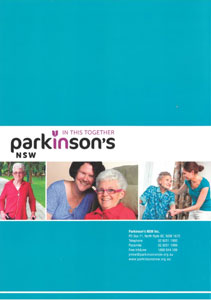In home care services for people living with Parkinson’s disease
Parkinson’s disease is a progressive disorder of the nervous system. The disorder affects many areas of the brain especially an area called the substantia nigra; this area controls a person’s balance, coordination and movement. The first symptom of Parkinson’s disease is often trembling or shaking (tremor) of a limb, especially when the body is at rest. Typically, the tremor begins on one side of the body and usually in one hand. Tremors can also affect the arms, feet and face. Not everyone with Parkinson’s has a tremor. Daughterly Care has supported and cared for many clients who have Parkinson’s disease.
Other characteristic symptoms of Parkinson’s disease include:
- rigidity or stiffness of the limbs and torso;
- slow movement (bradykinesia) or an inability to move (akinesia);
- many people with early Parkinson’s notice a change in sleep pattern;
- loss of smell; and
- develop smaller than usual handwriting.
Parkinson’s disease can also affect emotions and thinking ability (cognition). Some affected individuals develop conditions such as depression and visual hallucinations. People with Parkinson’s disease also have an increased risk of developing a form of dementia, which is a decline in intellectual functions including judgement and memory.
Who is at risk of developing Parkinson’s disease?
Parkinson’s disease affects people from all walks of life. Although 10% are younger than 40 years, it is more common in people over 65 years of age. Parkinson’s disease is progressive in nature and although it has many common signs and symptoms, each person is affected differently. There are at present approximately 80,000 Australians living with Parkinson’s disease.
What causes Parkinson’s disease?
Parkinson’s NSW has published this excellent 18 page booklet called “Your client has Parkinson’s” which covers:
- My client has Parkinson’s
- What is Parkinson’s?
- What causes Parkinson’s?
- What are the signs & symptoms of Parkinson’s?
- What treatments are available to people with Parkinson’s?
Care considerations for people with a Parkinson’s diagnosis:
- Time of visit
- Practical challenges
- Communication
- Mobility
- Falls
- Swallowing problems
- Getting in and out of bed
- Getting in and out of a chair
- Getting in and out of a car
Glossary of Parkinson’s terms
Read the Parkinson’s booklet now.
Progression of Parkinson’s disease?
Symptoms of Parkinson’s disease develop slowly and gradually progress over time. Each person is affected differently and the rate of progression varies greatly between individuals. Parkinson’s disease in itself does not directly cause people to die, although the symptoms do get worse over time. It is possible to live with Parkinson’s disease for more then 20+ years.
Treatments
There is currently no known cure for Parkinson’s disease, however, there are many treatments now available that can help a person to manage symptoms and allow a person with Parkinson’s disease to lead a fulfilling and productive life.
It is important that the diagnosis of Parkinson’s disease is made by a specialist, such as a neurologist. The specialist will examine for any physical signs of the condition and take a detailed history of symptoms. Parkinson’s disease is not easy to diagnose; there are no laboratory tests (such as blood test or brain scan) that can confirm a diagnosis.

10 November 2017 – Appreciation card from a client’s sister living with Parkinson’s in Woollahra, Sydney’s Eastern Suburbs
Dear Wendy,
Thank you more than we can say, for looking after G with such cheerfulness and practicality. You enable my sister to lead as normal a life as she possibly can, keeping up with her friends and having adventures too!
Much love
From the client’s sister
The Daughterly Care Joyful Living Approach™
We believe that people living with Parkinson’s disease have the right to enjoy a high quality of life with independence and dignity. We understand how important it is for people with Parkinson’s disease to continue to make their own decisions on a day to day basis and to keep control of their own life.
To assist with Parkinson’s disease, in home care is person-centred and focused on building a true understanding of the fluctuating and individual nature of the condition for each client. We understand the critical requirement for stable medication regimes and our professional caregivers and live in carers are trained to keep pace with the changeable nature of Parkinson’s disease.
At Daughterly Care, we adopt a holistic approach, recognising that Parkinson’s disease can mean a person is living not only with mobility issues but will often have emotional, social and psychological needs. Supported by our registered nurse team, our hourly caregivers and 24 hour live-in carers offer a wide range of services from personal care, outings/appointments, respite care, housekeeping, to 24 hour and Live in Care. Our private nurse care team are available for the more clinical in home nursing tasks involved in high level nurse care.
We understand that complex medical care can require equipment and other adaptions to the home later in the disease. Our dedicated in home care team are happy to liaise with other health care professionals to help you manage your health and social care needs in an holistic way.
Our services include:
- A dedicated in home care team led by a Case Manager and a Registered Nurse
- A full assessment by a Registered Nurse with ongoing reviews
- Bespoke and flexible care plan
- Specialist support and expertise 7 days a week, 24 hours a day
- Liaison and referral on your behalf
- Meal planning and domestic tasks and housekeeping
- Outings and appointments
- Social activities and lifestyle enhancement
- Complex private nursing care as needed
- assisting you to apply for a Consumer Directed Care Government Subsidised Home Care Package
Support for people with Parkinson’s disease
State-based organisations are available throughout Australia to support people living with Parkinson’s disease, from recently diagnosed through to advanced conditions of Parkinson’s disease. These organisations offer a range of support, education and referral for families, care givers and loved ones.
Parkinson’s Australia info line 1800 644 189
Adapted for Daughterly Care from: Parkinson’s NSW (2018) http://www.parkinsonsnsw.org.au/
If you need help caring for someone with Parkinson’s disease, don’t struggle on alone. Ring us today and we can arrange a free in home care consultation for you to discuss or your loved one’s your care needs and how we can help. (02) 9970 7333
Read unsolicited feedback from our clients. We’re always thrilled to receive such kind words.
The next step is easy … contact us for a confidential chat about your needs or to organise your, free no obligation consultation email claireg@daughterlycare.com.au or call us on (02) 9970 7333.

